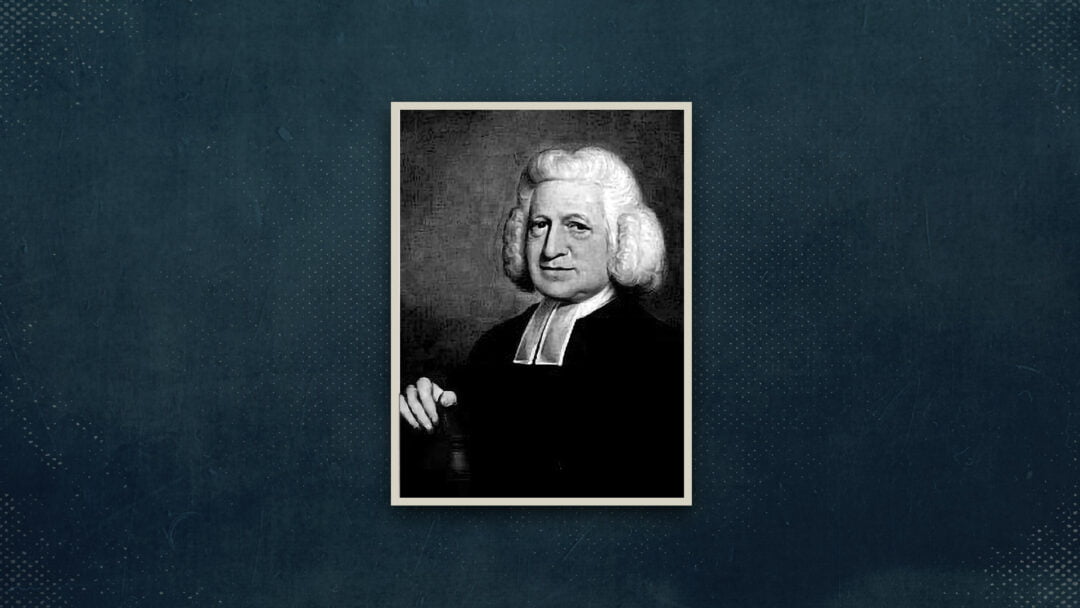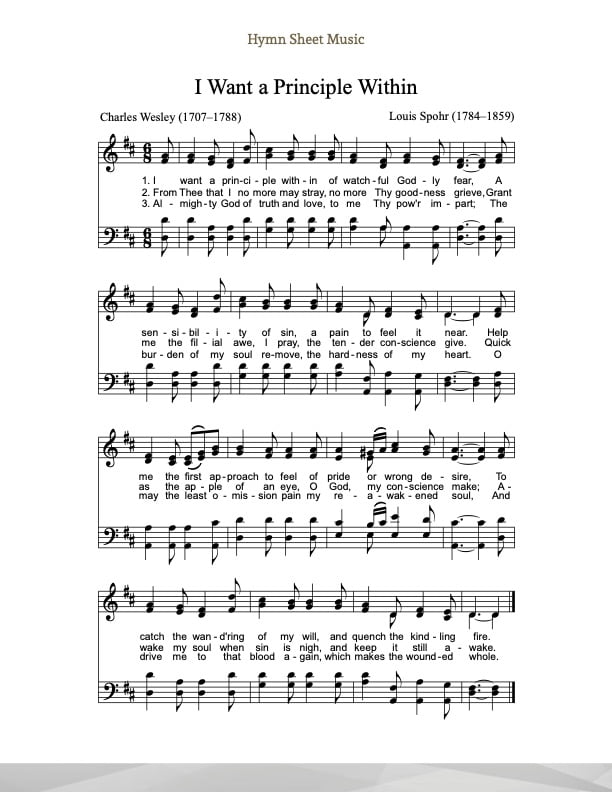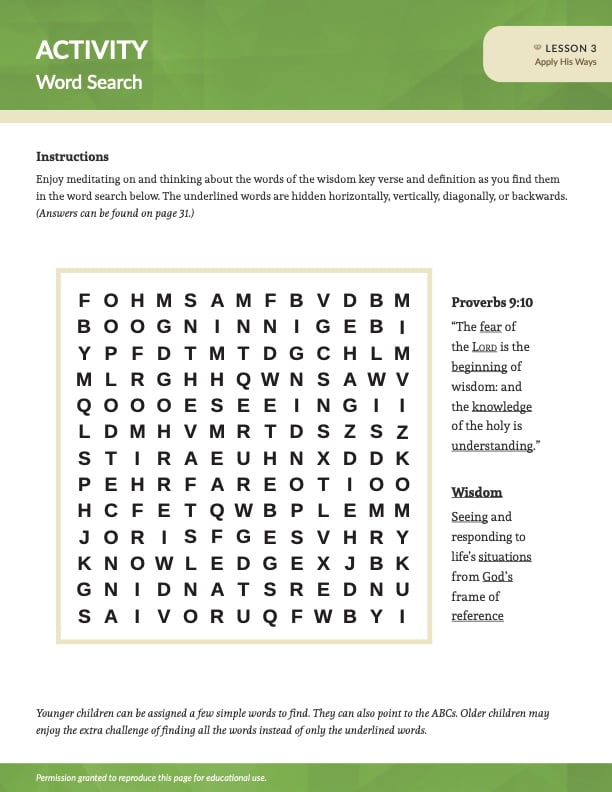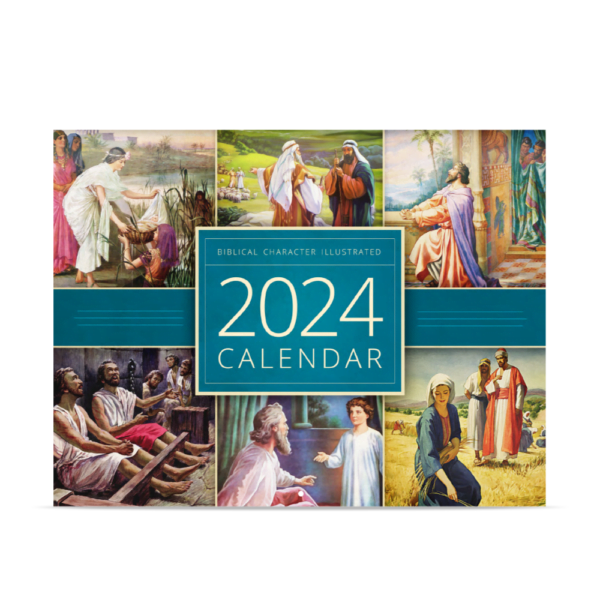
Wisdom
Key Verse
The operational definition of wisdom is “seeing and responding to life’s situations from God’s frame of reference.” A frame of reference is the way someone thinks about life, which affects how he responds to people and situations. A person tends to think and act based on his culture, experiences, education, and view of God. As you mature, you will find that others have different frames of reference and have information that you do not. For example, if a boy discovers that his bike is missing, he might run into the house, crying that his bike was stolen. However, if his mother tells him that the neighbor is borrowing the bike, he is relieved. Similarly, God’s greater knowledge and perspective can help us to better understand and respond to the situations we encounter. Ultimately, no one but God has full knowledge. To those who ask, He promises to give wisdom that is “pure, then peaceable, gentle, and easy to be intreated, full of mercy and good fruits, without partiality, and without hypocrisy” (James 3:17).
The opposite of wisdom is natural inclinations. Natural inclinations are usually impulsive actions or thoughtless reactions. Without considering God’s perspective, a person does what is “right in his own eyes” (Judges 21:25). He lives carelessly and foolishly, as though God does not exist. One who is governed by his natural inclinations tends to gratify his desires and disregard rules and correction. He does not care how his actions may affect others. Society reinforces this self-centered attitude through social media, television, movies, and books. In time, a person who follows his impulses will develop sinful patterns of thinking and behavior. James 3:14–16 describes this mindset as “earthly, sensual, devilish,” leading to confusion and evil.
Evaluation Questions
- Am I reading and meditating on God’s Word daily so that my thoughts align with His perspective?
- Do I look for ways to apply the truths that I learn in the Bible?
- Before making a choice, do I carefully consider the potential consequences to myself and others?
- Do I seek insights for life as I observe nature and the world around me?
- Beyond learning at school, am I learning from situations around me?
- Am I grateful for those who love me enough to reprove and correct me?Am I aware that God sees and hears everything that I do and say?
- When making a difficult decision, do I seek counsel from wise people?
- Would others say that I am teachable?
More About Wisdom


God enables me to:
Listen to my parents and teachers.
Welcome correction and change my ways.
Keep company with wise people.
Ask, “Will this please the Lord?”
See His perspective.
Remember that choices have consequences.
Continue learning.
Love His Word.
Fear Him.
Apply His ways.
Wisdom in Scripture
Three Generations Study God’s Word

Revealed in Nature
Great Horned Owl

For Kids
Biblical Character Illustrated Curriculum
View the Wisdom booklet sample:
Free Resources for Wisdom
Enjoy these selections from the Biblical Character Illustrated Curriculum that are fun and memorable!














